On April 8, 2024, a total solar eclipse occurred, providing a once-in-a-lifetime opportunity to many across this portion of Earth’s hemisphere. This phenomenon occurs when the earth moves into the moon’s shadow, and the moon completely blocks the sun, creating a brief period of darkness in the daytime. This period of time, called “totality,” was only viewable to regions within the path of the Earth’s alignment with the moon. Though some traveled far to witness the eclipse in totality, students, faculty, staff and the greater Toledo community were lucky enough to view it right on the UToledo campus.
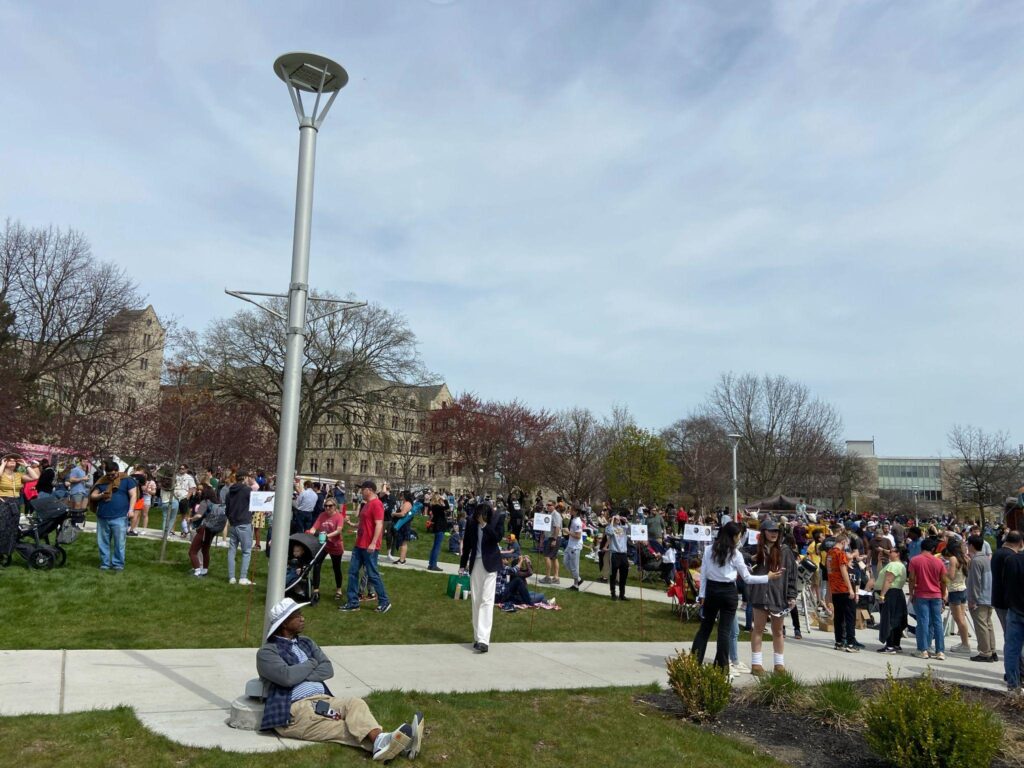
For The University of Toledo, the total solar eclipse was a perfect opportunity as a campus-wide viewing event to engage and educate the campus and community as they gathered together to experience this rare phenomenon. The festivities included food trucks, inflatable carnival games, yard games and fun for all ages. As part of the educational experience, free eclipse glasses were handed out to attendees to ensure safe viewing. UToledo’s Department of Physics and Astronomy led the commentary throughout the viewing and capitalized on this educational opportunity. As an educator, Dr. Jillian Bornak hopes for people to gain an interest in the solar system and space as a whole.
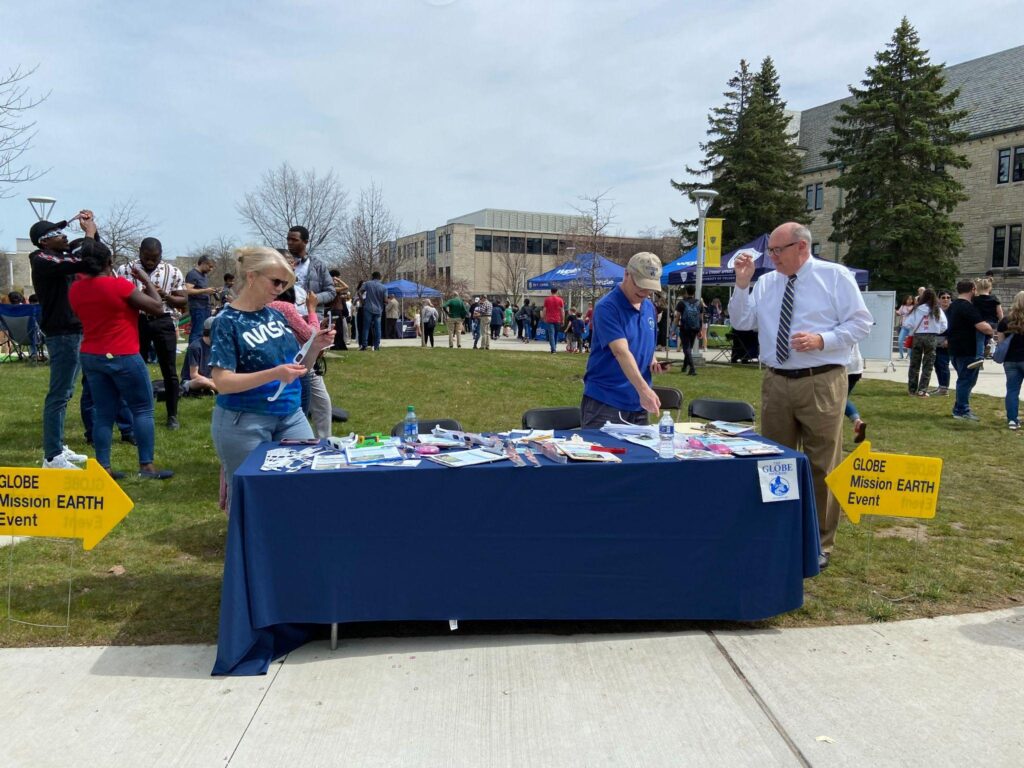
“I think there will be an influx of interest, and I hope we can capture on that and say, ‘Okay, you want to learn more about how the natural world works. Sure! This is great. Let’s look at some amazing stories about our world and our universe,'” said Dr. Bornak.
Bornak earned her Ph.D. at New Mexico State University and is a distinguished university lecturer in the Physics and Astronomy department, where she conducts research on modeling the accumulation of dust as a result of white dwarf impacts. The Department of Physics and Astronomy provided a telescope equipped with a solar filter for attendees to get a closer look.
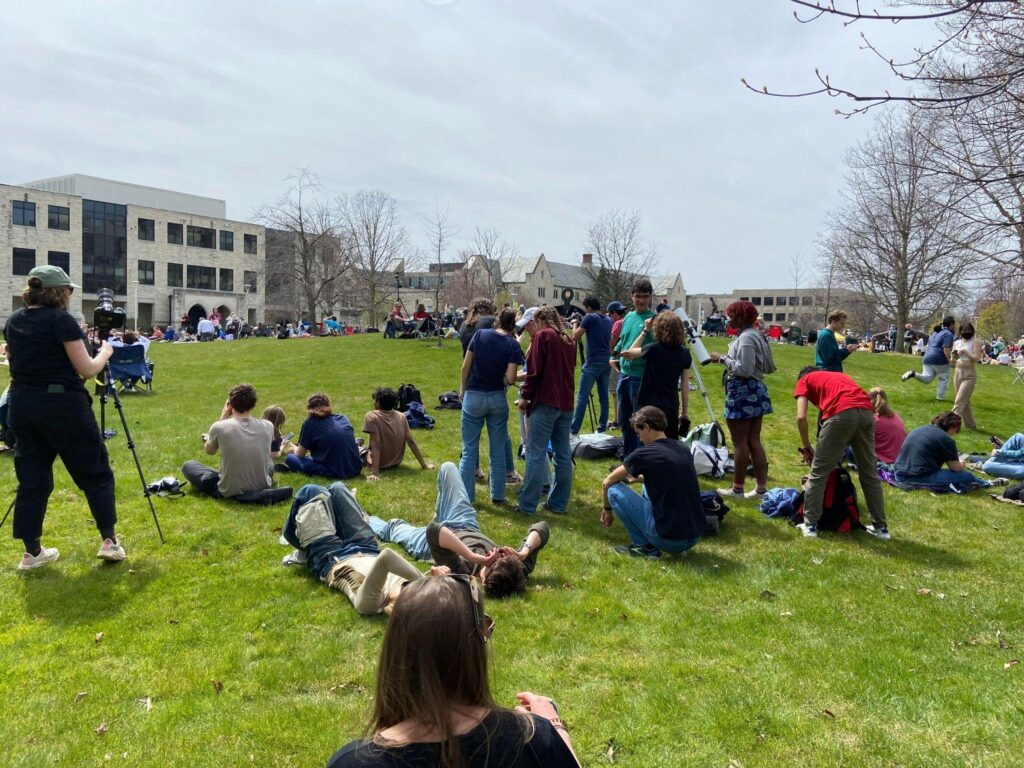
The event drew a diverse crowd of students, faculty and community members, all eager to witness this extraordinary spectacle together. Emma Allen, a student who attended the event, described the atmosphere: “I had never seen Centennial Mall so crowded before, and there were a lot of families there, besides students … Some people were in chairs or sitting on picnic blankets and most people had eclipse glasses on.”
To attendees, the viewing was also a bonding moment. “Everyone clapped and cheered when the total eclipse happened … It was nice having a collective experience with people over something cool like the eclipse!” Allen said.
Due to the large number of attendees, the university offered multiple locations across campus to provide an optimal viewing experience, including the jumbotron at the Glass Bowl Stadium.
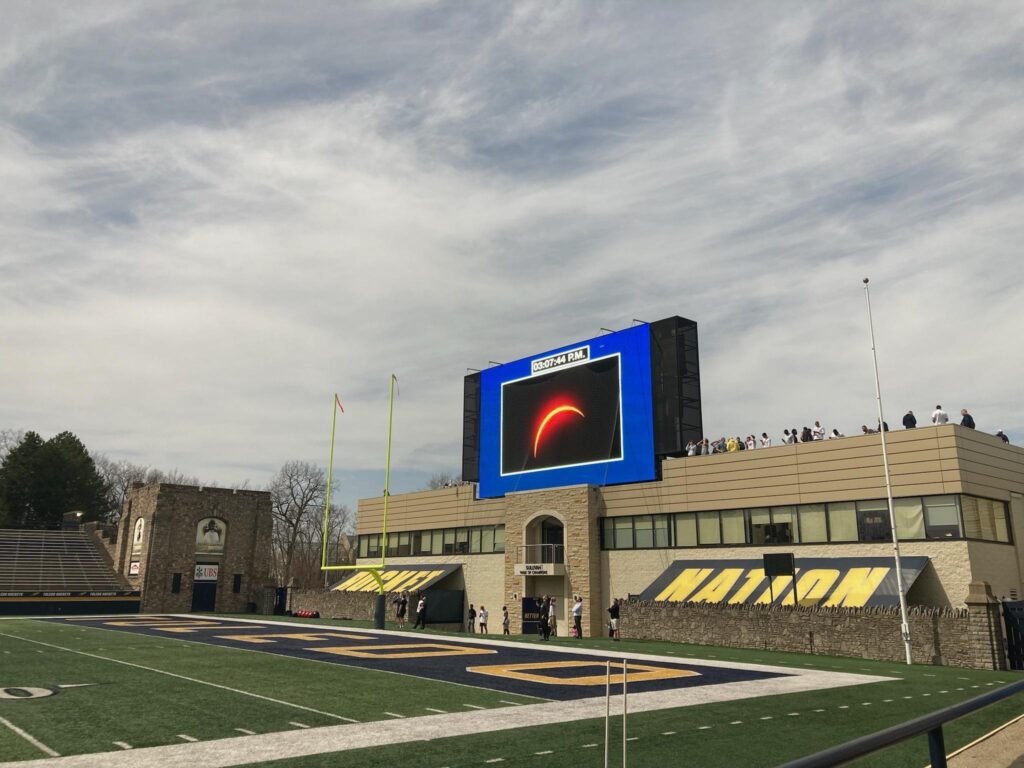
As the moon’s shadow enveloped the sun, the sky darkened, and a sense of wonder filled the air. Dr. Michael Cushing, director of the university’s Ritter Planetarium, explained the science behind the eclipse: “It all comes down to shadows… for a solar eclipse, what happens is the earth moves into the moon’s shadow, so, effectively, the moon’s shadow is cast onto the surface of the earth.”
Dr. Cushing, who holds a Ph.D. from the University of Hawaii, conducts research related to discovering brown dwarfs and low-mass stars.
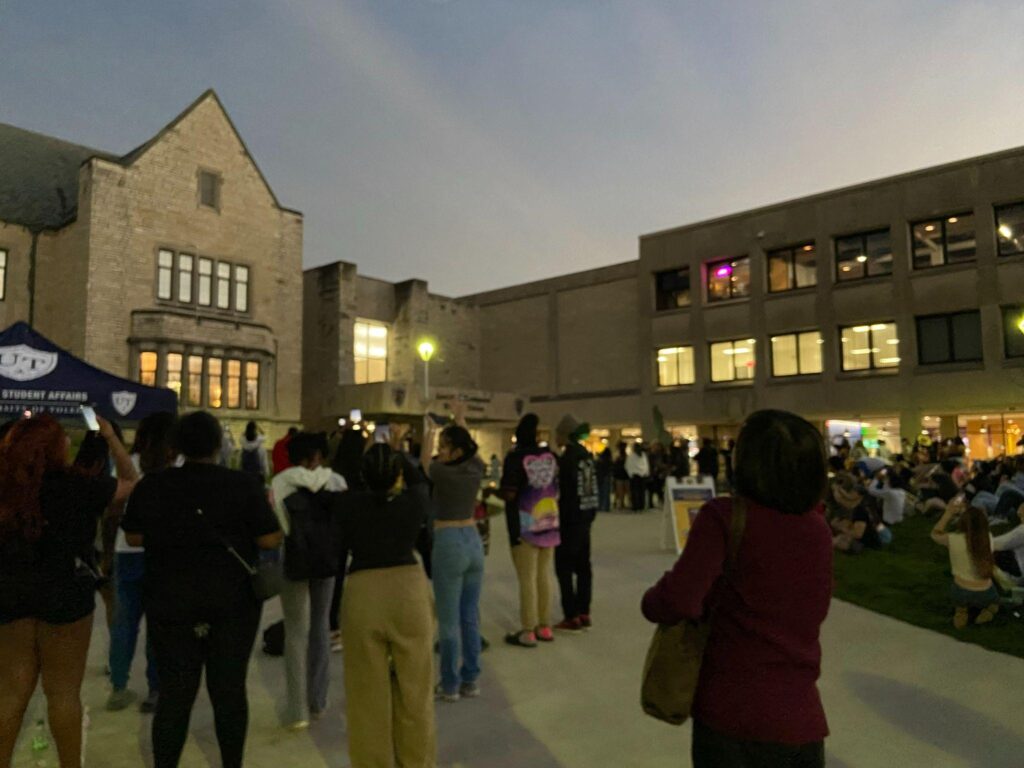
The eclipse offered not only a chance to learn about astronomy but also an opportunity for the UToledo community to come together and share a unique experience. This event highlighted the power of such moments to enrich campus life and foster a sense of connection among students, faculty and the wider community.


